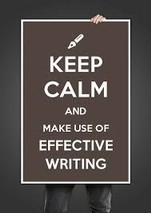"All The World's A Stage...": Know Your Audience - The Grammar-Us Blog - Grammar-Us
Main menu:
"All The World's A Stage...": Know Your Audience
I was watching an episode of “CSI” the other day, in which Hodges, the brainy but socially inept lab technician, tries to interact with a six-
Avoiding a similar reaction to your own communications may be as simple as knowing your audience – or at least having a goal in mind as to what type of audience you want to reach. Unless you’re talking to yourself or writing in a private journal, you no doubt are trying to connect with your audience. Here are a few things to keep in mind to help you achieve this:
1. According to a study conducted by the National Center for Educational Statistics, the average reading level in the U.S. is 8th or 9th grade. Styling your prose with this in mind will ensure that it can be understood by the maximum number of people. This does not mean that you have to “dumb down” your communications, but it does mean that you need to write clearly.
One way to do this is to use shorter, more commonly understood words instead of long or obscure ones. This will not only make you more likely to be understood, but also it can help you avoid the embarrassment of misusing a word. One thing I see often in my proofreading and editing projects is writers trying to sound erudite by using those “$100 words” of multiple syllables, only to use them improperly, totally ruining the impression that they hoped to make!
Here is an example of something I recently read that illustrates my point: “They kept throwing themselves into untenuous situations.” There is no such word as “untenuous.” The word tenuous, however, means “very weak, slight or unsubstantial.” UNtenous, if it existed as a word, would mean that it was not weak, slight or unsubstantial. I believe what the writer was actually trying to say is that they kept throwing themselves into untenable situations, meaning situations that could not be maintained, defended or justified.
The moral of this story: There’s certainly nothing wrong with having a good vocabulary and using it. However, it’s always a good idea to use words you actually know – or at least break out the Webster’s Dictionary to double-
2. Acronyms and jargon can also sabotage your communications. For example, while everyone in the U.S. probably knows what the “IRS” is, fewer people may be familiar with the DOJ (Department of Justice), DOD (Department of Defense), POTUS (President of the United States) or NSA (National Security Agency). If you choose to use acronyms, a good rule of thumb is to define them the first time you use them. Similarly, use of jargon (words typically used in a specific profession or industry, such as “legalese” or computer-
3. Similarly, using slang or colloquialisms can turn off your audience. To reach the largest number of readers or listeners – and to keep their attention – it is to your benefit to use more universally understood language. This is especially important these days, when everything is “going global.” Although you may understand when someone tells you that she is “making a bunch of dough” in her new job, this may be totally incomprehensible to someone from Russia, for example, who looks in his Russian/English dictionary and assumes she must be a baker, or wonders why in the world she would work for a company that pays her with bread!!!
Akin to slang words and expressions are colloquialisms, which are words and phrases that are even more regional in origin and use and thus potentially confusing even to your fellow Americans. For example, here in Texas, we might say, “That was a real frog-
4. Consider using a short, concise sentence structure. It will make life much easier for you and your audience! For you, shorter sentences will help you avoid the dilemma of where and how to use that plethora of punctuation marks. For your audience, it will help to keep them focused on the points you are making and avoid the necessity of using a mental machete to hack through a jungle of words to the meat of your message. One of the world’s greatest writers, Ernest Hemmingway, was known for his short and powerful sentences. If it worked for him, it can work for you!
The foregoing suggestions are intended to help you connect with a general audience – a “middle-
When all else fails, RESEARCH! If you are assigned a writing task or asked to give a presentation to a group, do a little digging to find out “to whom it may concern.” Find out as much as you can about who may be reading your article or listening to your speech, and then you can tailor your communication style to engage them and keep them engaged.
BONUS TIP:
Here a few words (or, in some cases, non-
Irregardless – Although it is arguable whether or not this is a “real” word, it is definitely non-
Ain’t – According to Webster’s Dictionary, this is a contraction of “are not,” “is not,” “has not” or “have not.” However, it should be avoided, unless your communication is extremely informal.
Alright – This is not a word. The correct terminology is “all right.”
Alot – As I was typing “alot,” my word processing software automatically (and correctly) changed it, making it two words, and then showed it as a spelling error when I overrode the autocorrect. “Alot” is not a word!
Flustrated – You can either be flustered (agitated or confused) or frustrated (feeling annoyed at the inability to change something), but there is no such word as “flustrated.”
Invaluable – This is a legitimate word, but I believe it is often misused. “Invaluable” means “valuable beyond estimation; priceless.” Many times, use of the word “invaluable” is hyperbole (exaggeration). “Valuable” is a perfectly good word and is often more suitable.
- FRESH WRITING
- TWELVE ERRORS THAT MAKE A GRAMMARIAN GNASH HER TEETH
- THE WHYS AND HOWS OF WRITING AN EFFECTIVE CONSUMER LETTER
- FILLER WORDS: THE "JUNK FOOD" OF COMMUNICATIONS
- Pardon Me, Your Participle is Dangling!
- MAKE BETTER GRAMMAR A NEW YEAR’S RESOLUTION
- The Value Of Personal Letters
- How To Make Your Writing Flow
- How (And Why) To Tighten Up Your Writing
- Why Grammar Matters
- Time For Another Grammar Quiz!
- Editing: The "Make Or Break" Skill
- Proofreading: It Matters More Than You Think!
- Please Don't Ruin A Perfectly Good Tense!
- A Brave New Word
- Homophones: The Sequel
- Coulda, Shoulda, Woulda And Other Incorrectly Written Words
- More Homophones
- Time For Another Grammar Goof Quiz
- A Different Kind Of Colonoscopy (And Semi-Colonoscopy)
- Comparatives & Superlatives: The Good, The Bad, And The Ugly
- Either/Or, Neither/Nor: Decisions, Decisions!
- Let's Agree To Agree
- Avoiding Apostrophe Apocolypse
- Let's Pause To Honor The Comma!
- Three Speech Patterns That Can Compromise Professionalism
- A Hit Parade of Grammar Misses
- Negative Nancy Has Hijacked My Blog!
- Who Dat?
- Avoiding the Ill Effects of Misusing "Affect"
- How To Perfectly Use Six Irregular Verbs
- Random Ramblings
- Me, Myself and I: The Narcissist's Nightmare
- Confounding Compounds
- "All The World's A Stage...": Know Your Audience
- From The Department Of Redundancy Department: The Whole Entire Scoop On "Whole" And "Entire"
- Grammatically Challenged? There, Their, They're. It'll Be OK!
- "Its": It's a Special Exception
- We're Up And Running!